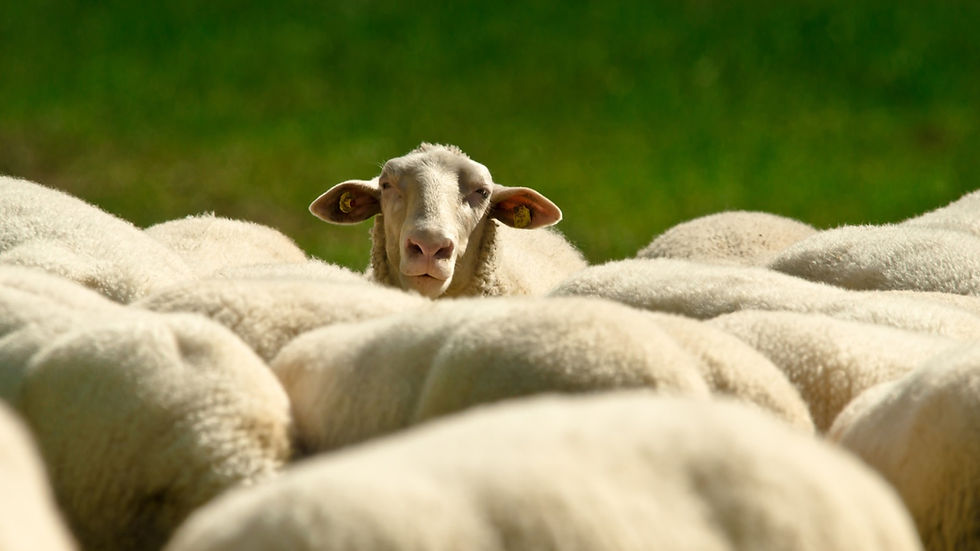Australian sheep industry taking 2030, 2050 methane targets seriously amid flock rebuild
- Rikki Lambert
- Nov 2, 2022
- 3 min read

Sheep Producers Australia say a recent emissions intensity report highlights the steep task they have reaching 2050 methane emission reduction targets in the nation's growing sheep flock.
As sheep producers recover from years of drought but in some places face flooding in late 2022, the Sheep Producers CEO Bonnie Skinner said the peak body is taking methane emissions very seriously:
"Carbon neutrality and the effects of sheep production on the climate is a massive priority of Sheep Producers Australia and a big focus area for our policy development at the moment.
"The sheep industry has benefited from years of improved productivity in terms of the flock but we have plans to grow the flock and grow it sustainability.
"While we are well on track to meet or exceed our targets for 2030, getting to 2050 is going to be a little bit more challenging. We're certainly going to be reliant on the technological advancements that need to happen."
Hear the full interview on the Flow podcast player below:
Ms Skinner welcomed state and federal funding researching feed additive initiatives that prior to now had been a focus in the cattle industry.
On Wednesday South Australian primary industries minister Clare Scriven announced that the state's agriculture department, Primary Industries and Regions SA would research adapting water delivery technology to deliver methane-reducing additives in sheep water troughs.
A $1 million combined injection from the federal Methane Emissions Reduction in Livestock program with Australian Wool Innovation will drive a 12 month project starting next year at PIRSA's Turretfield Research Centre.
Minister Scriven said on Wednesday:
"Exploratory work examining how feed additives could reduce the methane emissions of grazing sheep, can play a role in future proofing South Australia’s $1.3 billion sheep industries.
"This research into delivering feed supplements to reduce methane emission in cattle grazing is also important for our $1.4 billion cattle industry.
"The project has been announced following the news that Australia has joined more than 120 countries in signing the Global Methane Pledge, to help ensure ongoing access to international markets for our $24 billion livestock and dairy industry."
The Methane Pledge has sparked calls from National Party MPs for Australian livestock producers to be protected from the cost of signing the pledge, stirred by the reduction of the livestock herd in New Zealand. The Ardern government resurrected former PM Helen Clark's 'fart tax' in October.
Once implicitly linked with sheep production, New Zealand will now commence a scheme in 2025 (if re-elected) requiring farmers to report their stock, dairy cattle and synthetic nitrogen fertiliser use and pay a fee based on their calculated emissions. The price will be set by the government based on their Climate Chance Commission's modelling and Paris agreement targets.
Prime Minister Jacinda Ardern said on 11 October that Kiwi farmers would benefit as global "first movers" given increased demand "in a world increasingly concerned about the provenance of their food":
"Cutting emissions will help New Zealand farmers to not only be the best in the world but the best for the world, gaining a price premium for climate friendly agricultural products while also helping to boost export earnings,"
On 12 October, Australia's National Party leader David Littleproud representing the cattle-producing southern Queensland seat of Maranoa said:
"It is extremely concerning New Zealand wants to reduce methane emissions by reducing the burps of cattle and sheep - you can only reduce burps and their urine output by reducing numbers of herd.
"Australian farmers have done the heavy lifting. Not just to help us meet our international commitments but because they know their profit and loss is tied to the health of their land."



Comments